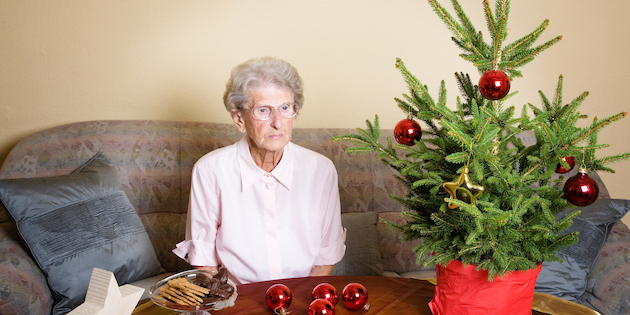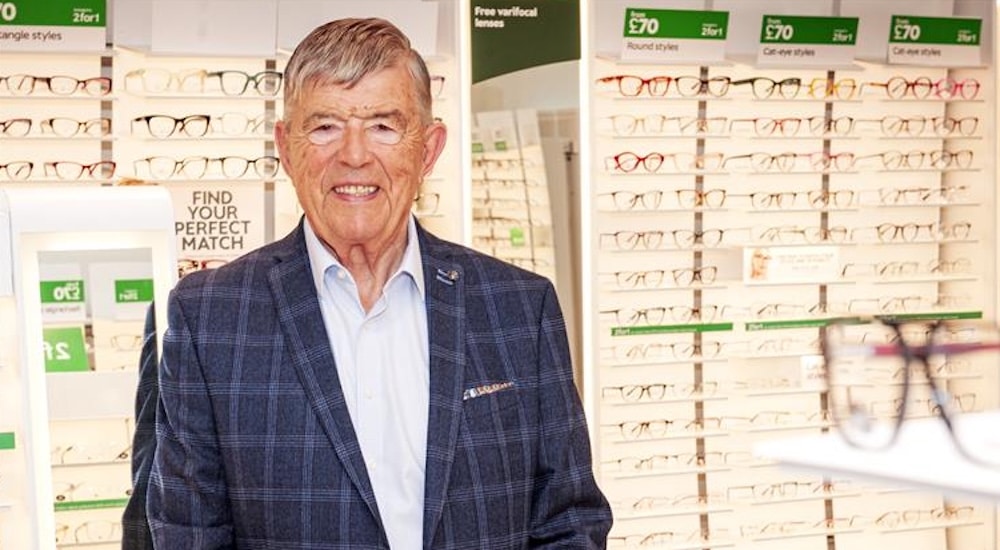It'll be lonely this Christmas...lonely, cold, depressing. Untreated hearing loss is a factor.
Both the risk and intensity of isolation are heightened for many during winter's cold months. And if you're alone when everyone else is gathering for Christmas cheer, your solitariness is brought into painfully sharper focus.

A growing number of people vulnerable to the conditions of isolation suffer from hearing loss, points out the British Irish Hearing Instrument Manufacturers Association (BIHIMA) together with a seasonal reminder that hearing instruments can “drastically lower an individual’s propensity for loneliness”.
“The links between loneliness and hearing loss are extensive. Hearing loss impairs communication and the ability to socialise which can lead to people avoiding social situations entirely,” says BIHIMA chairman Paul Surridge.
“This is currently being compounded by the colder, darker days ahead and the continuing cost of living crisis – the reality is that more and more people are spending prolonged periods of time alone, and this is a considerable problem for those living with hearing loss,” added this industry expert.
 Click here for some tips on coping with loneliness
Click here for some tips on coping with loneliness
Loneliness affects 1.4 million older people in the UK, according to the charity Age UK. BIHIMA estimates that age-related hearing loss affects approximately 30-35% of adults between the ages of 65 and 75, and this number increases to over 50% for those over the age of 75.
“These elements combined mean that there is a significant proportion of people vulnerable to the ripple effects of isolation this winter,” states the industry body.
Synergising with this warning about the starkness of a lonely life is the Marmalade Trust charity, which is dedicated to raising awareness of loneliness. Its Regional Director, Martin Green, stressed the difficulties the festive season presents: “It isn’t easy trying to maintain a sense of community and connection as the days grow shorter and the temperatures drop in winter. The festive season, often associated with warmth and togetherness, can ironically amplify the sense of loneliness for those who don’t have a supportive social network,” he said.
Rising costs compounding the loneliness problem
Making the picture even bleaker, the Pension Policy Institute (PPI) has previously reported that the cost of living is increasing more quickly for pensioners than their income. Daniela Silcock, Head of Policy Research, said: “We see that rises in housing and energy significantly impact this group. Our data has revealed that pensioners – typically in the 66+ age bracket – spend a growing portion of their income on essentials such as housing, bills and food as they become older and have less to cover transport or leisure activities.”
Young people are lonely too
Loneliness and social isolation are widespread issues and can affect a person at any age. A 2022 study by HARTMANN found that a proportion of every age group often (or always) felt lonely. Similarly, the BBC’s Loneliness Experiment found that 40% of young people now feel lonely vs 27% of over-75s. While there are many factors that impact a person’s tendency for loneliness, there is a significant body of research which suggests that hearing impairment can accentuate social isolation. With evidence from the National Institute of Health Research connecting loneliness and depression with untreated hearing loss, it is clear that this is a problem with widespread repercussions.
“Hearing loss can affect many different aspects of a person’s life, and no one should have to feel isolated or lonely because of their hearing. We know that wearing hearing instruments helps people’s ability to communicate and, therefore, can potentially help reduce those levels of loneliness – in fact, 63% of respondents in our Eurotrak study said that hearing instruments improved their overall ability to communicate more effectively in most situations. It also found that 54% could participate more in group activities and 52% experienced improvements within their social life,” said BIHIMA chair, Surridge.
BIHIMA is calling on those with hearing loss to prioritise hearing tests and adequate hearing care in order to minimise their risks of loneliness and isolation.
“Taking early action on hearing loss can help prevent these issues, which is why we are calling for free hearing checks from the age of 40. By raising awareness and helping people access the support they need for hearing loss, we can help reduce issues like loneliness and enrich people’s lives,” said Surridge.
However, hearing instruments are not the full solution – they are a part of it. Martin Green, Marmalade Trust, said:
“Loneliness can be an uncomfortable feeling, one we might want to push away or ignore. It’s important to remember that loneliness is a completely normal emotion – it’s our brain’s way of letting us know we’re in need of meaningful connection. Loneliness can often feel overwhelming and something out of our control, so it can be useful to have a starting point.”
“We’ve developed a three-step approach: Noticing and acknowledging your feelings of loneliness, taking time to learn about what kinds of connections make you feel better, and then taking action to foster connection will help you manage feelings of loneliness this winter.”
The socialising pluses that come from hearing instrument use.
UK EuroTrak data found that the use of hearing instruments led to more job satisfaction and opportunities, lower risk of depression, better quality of sleep and less exhaustion in the evenings: all factors that can have an enormous impact on an individual’s ability to socialise and benefit from the company of others.
Click here for some tips on coping with loneliness.
Source: BIHIMA
 Click
Click 



